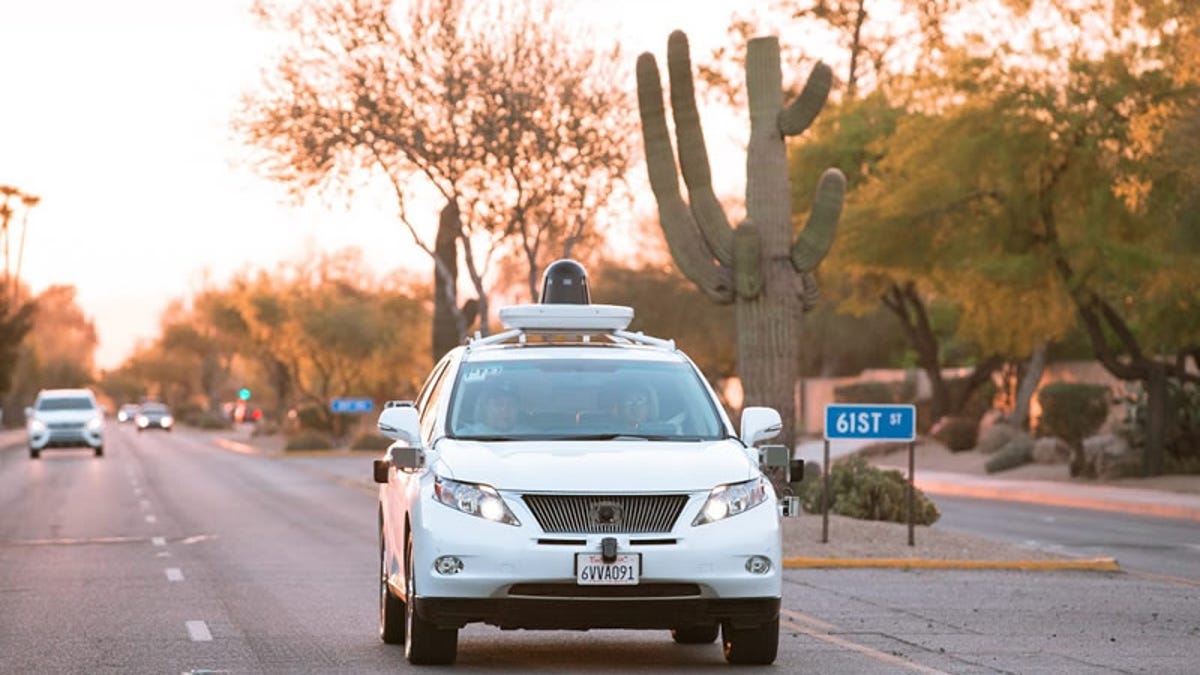Why the Lexus RX hybrid is a predictable choice for Apple's self-driving tests
From Google/Waymo to Apple to countless startups, why do we see so many Toyota hybrids being used in autonomous car testing?

Yesterday, when photos emerged of Apple's new autonomous test vehicle, my first thought was, "Of course, it's another Lexus RX450h! It's always an RX hybrid or a Prius."
With so much of today's self-driving car development using off-the-shelf parts and focusing on optimizing software and machine learning, it really shouldn't matter what car the autonomous tech rides in. We should see more variety. Yet, startups and tech giants alike pick Toyota 's hybrids as their rolling test beds, time and time again. Why is that?
Well, there are a couple of reasons. The first one is that Toyota's hybrids are already highly computer controlled.
Companies like Google and Apple likely chose the Lexus RX because its tightly monitored and networked vehicle systems are familiar to their developers.
Everything from the hybrid powetrain to the electronic steering and braking systems are all tightly controlled, monitored and -- perhaps most importantly -- networked to the car's central computer via protocols that very closely resemble the Ethernet on your home or office network. This makes it relatively easy and familiar for developers to connect to the cars at a central point and gain information about the entire car -- as well as control it -- without having to hack a half-dozen individual systems. Less work connecting to the car in the first place means more resources can be devoted to the business of making it drive itself.
The Toyota hybrid system isn't unique in its tightly networked systems, but its platform is one of the oldest. This is why you see older third-generation RX450h and Prius hybrids picked over brand-new fourth-gen examples. Enthusiasts and developers have been "hacking" their Prii since 2009, so the methods for connecting to the car are well-established and documented. The lessons learned on the Prius translate almost directly to Toyota's larger Lexus RX hybrid.
When presented with the choice between reinventing the wheel and hacking a new platform or just getting on with the business of slapping sensors on a Toyota, developers likely pick the path of least resistance. After all, the car doesn't really matter. This is especially true when you consider the cross-pollination and poaching of talented engineers from other auto-car startups that also use Toyota's platform.
The computer brain in AiMotive's self-driving Prius takes up nearly the entire rear stowage -- and this isn't even the largest auto-car rig we've seen.
Finally, today's self-driving prototypes require a lot of processing power. We're talking multiple desktop gaming PCs' worth of silicon. (I specify gaming PCs, because many autonomous prototypes repurpose multiple gaming graphics cards to crunch the gigabytes of lidar, GPS, video and radar data their sensors take in every minute.) So, a hatchback like the Prius or an SUV with the capacity of the Lexus provide plenty of space for the computers, massive power supplies, additional sensors and cooling capacity to keep everything humming along smoothly.
In a nutshell, the reasons we see so many RX and Prius hybrids in self-driving testing is because they're familiar, established platforms that are spacious enough for the hardware engineers need on board -- reasons that closely mirror why many consumers choose these cars as their daily drivers.
Of course, the Lexus RX450h and Toyota Prius aren't the only players on the autonomous playground. Uber , for example, has partnered with Volvo for its autonomous testing, and automakers in the autonomous space obviously use their own vehicles. It just makes sense that Ford 's or Hyundai 's engineers, for example, would be more intimately familiar with their respective Fusion and Ioniq as self-driving platforms. Besides, it would just be weird if it got out they were using Toyotas.

